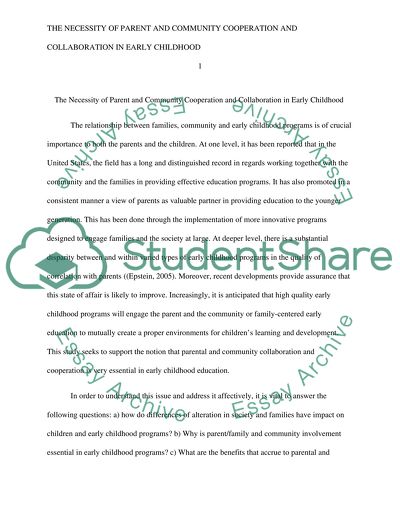Cite this document
(“The Necessity of Parent and Community Cooperation and Collaboration in Essay”, n.d.)
Retrieved from https://studentshare.org/education/1440566-the-necessity-of-parent-and-community-cooperation
Retrieved from https://studentshare.org/education/1440566-the-necessity-of-parent-and-community-cooperation
(The Necessity of Parent and Community Cooperation and Collaboration in Essay)
https://studentshare.org/education/1440566-the-necessity-of-parent-and-community-cooperation.
https://studentshare.org/education/1440566-the-necessity-of-parent-and-community-cooperation.
“The Necessity of Parent and Community Cooperation and Collaboration in Essay”, n.d. https://studentshare.org/education/1440566-the-necessity-of-parent-and-community-cooperation.


